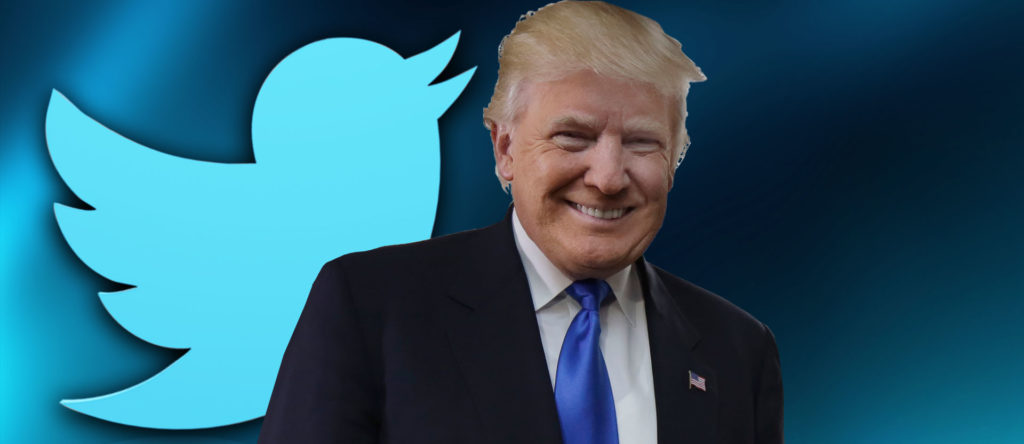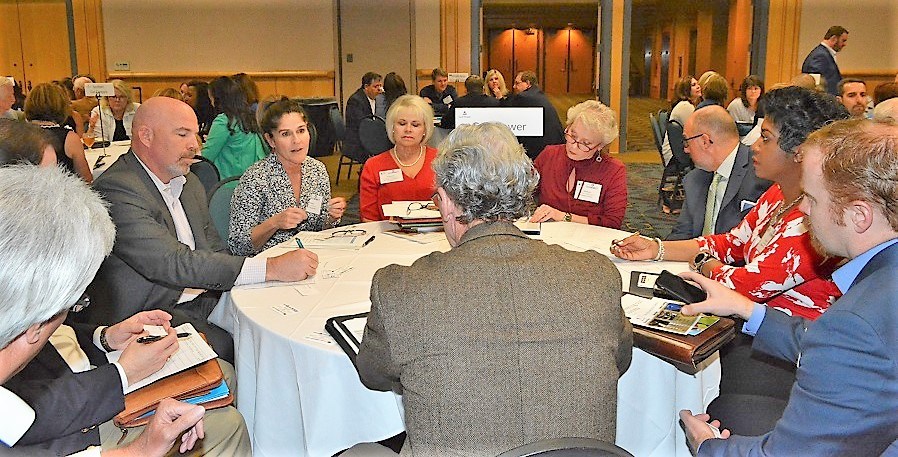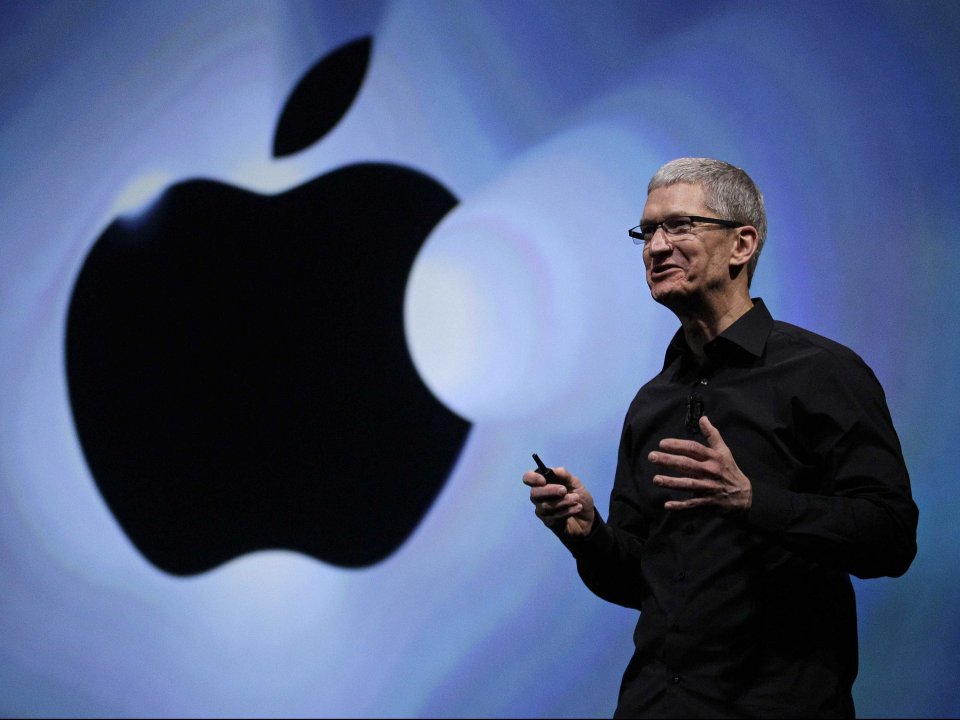Deontee Gordon of TechBirmingham sees Birmingham leading in inclusive innovation

As president of TechBirmingham, Deontee Gordon has a front-row seat to the growing innovation economy in the Magic City. He likes the view. “It’s exciting to see us going from a city and a region that did a lot of studies to a city and a region that is acting on them now,” Gordon said. “If you look at the major components of a city, of an area – the government, the public, the people, the private sector, your institutions, your philanthropic community – they are all on the same page. “When I am in these meetings, they are all represented at the table,” he continued. “They have a voice that is being heard and that is being included. I am hard-pressed to think of a time in Birmingham’s history where all of those buckets, those components were at the table and they were playing well in the sandbox together. It’s probably the most exciting time in Birmingham’s history since its inception.” Deontee Gordon likes what he sees in the inclusion and diversity of Birmingham’s tech growth from Alabama NewsCenter on Vimeo. That may sound like a bold statement for a place that earned the name the Magic City for its explosive growth. But it’s also a city that earned the nickname “Bombingham” for its explosive hate. Overcoming that and being seen by many as ground zero for the civil rights movement actually helps Birmingham in the new economy, Gordon believes. “You look at Birmingham, it makes sense for all of this activity to take place in an area that was known for being the battleground, for leading the entire nation and in so many ways impacting the world,” Gordon said. “I say it time and time again and I hope it’s not hackneyed at this point, but in what better city than Birmingham to do this work? While that particular lens might focus on a certain race, at the end of the day it is still inclusive, and it is inclusive of everybody.” Gordon is among the tech sector leaders in Birmingham who are pushing for the metro area to lead the nation in inclusive innovation – taking the steps to elevate everyone with the knowledge and certifications needed to participate in the tech economy. TechBirmingham has taken on part of this responsibility with its Kids Code Club and other outreach initiatives to help young people gain skills for STEM (science, technology, engineering and math) and computer coding jobs. TechBirmingham was also instrumental in working with the city of Birmingham, Birmingham City Schools and Lawson State Community College to bring Apple’s Everyone Can Code curriculum to create Birmingham Can Code. The Innovate Birmingham program is reaching out to young adults ready to take jobs at partner companies. They go through a certification program in partnership with UAB and Innovation Depot to try to produce nearly 1,000 job-ready graduates in the next few years. Many of the participants in its I AM BHAM coding bootcamps and Generation IT bootcamps are from underserved neighborhoods and would not have had an opportunity to pursue tech jobs without the programs. “What I love about Innovate Birmingham’s approach is that they are not forgetting that local talent base,” Gordon said. “It might be a long-term play, but it is a needed play. That’s how Birmingham separates itself from other cities because we constantly ask ourselves as part of our guiding principles, ‘How does this positively impact everybody.’” Gordon said he is also in favor of recruiting companies and talent from outside of Birmingham, but to neglect those who are here would ignore a significant asset. “If you want to look at all of the movement and activity from an historical lens and a cultural lens, the black community, in particular, I believe prides itself on doing a lot with nothing,” he said. “Ingenuity, creativity, being expressive, creating art out of movement and music – something that leaves a legacy built from thin air. To take that creativity, that sense of just unbridled passion and now use technology as a conduit to channel that through, I think it just bodes well.” For Gordon, it’s not about no longer seeing color. Instead, it is about valuing those colors and contributions you do see. “I think it is more so about appreciating what every person, what every culture and every group brings to the table,” he said. “There are common threads that bind us all. Obviously, we’re Birmingham goals as a region, we’re Alabama goals as a state. What happens in Mountain Brook will impact somebody in Midfield. What happens in Mobile will impact somebody in Fairhope and Huntsville. To the degree that we can recognize how we are all linked together and bust down those silos, we will be better for it.” When Gordon talks about inclusive innovation, it’s a matter of “you don’t have to shed who you are to be a part of it,” he said. It means not focusing on race, gender, age, sexual orientation or other factors when it comes to people’s contribution to the workforce, he said. “We have a rich tapestry,” Gordon said. “If we recognize that and what those individual groups bring to the table but also weave that in a common thread and narrative, that’s how you change it.” There are efforts underway, Gordon said, to expand education and training outreach throughout the metro area and into rural areas using existing assets like local libraries to elevate under-served populations. “Whereas a rising tide lifts all boats, we have to recognize that some people don’t have boats,” he said. “If we answer that question and make sure that it’s accessible to everybody, that’s how you change the game.” And the game is changing with Amazon setting up shop in Bessemer, Mercedes-Benz building electric vehicle batteries in Bibb County, Shipt growing its presence and jobs downtown, DC BLOX building a data center near Titusville, Joonko moving to Birmingham from Israel or companies like Fleetio and Pack Health continuing to grow. “We have a lot to celebrate, a ton of wins and what’s exciting and encouraging to me is that word is starting to get out,” Gordon said. “When you get here, everybody senses that excitement. It’s palpable. You
Donald Trump says he ‘won’t let’ social media target conservatives

President Donald Trump is accusing social media companies of “totally discriminating against Republican/Conservative voices” and says “we won’t let that happen.” Trump’s Saturday morning tweets come as companies have been working to ban right-wing “Infowars” conspiracy theorist Alex Jones from their platforms. Apple, YouTube and Spotify have permanently removed some of his content, Facebook has suspended him for 30 days and removed some of his pages, while Twitter has given Jones a weeklong timeout and is mulling deeper changes to try to limit the spread of fake news, misinformation and hate speech. Trump did not mention Jones by name in his tweets, which complained that, “Too many voices are being destroyed, some good & some bad.” Trump appeared on Jones’ program during the 2016 campaign and praised his “amazing” reputation. Republished with the permission of the Associated Press.
Women-owned businesses get energized by business opportunities at Birmingham conference

Female-owned business learned what it takes to do business with energy companies like Alabama Power at the Women’s Business Enterprise Council South’s Second Annual Power Industry Summit in Birmingham. “This is the first time we’re having this conference in Birmingham,” said Phala Mire, president and CEO of WBEC South. “It’s our second Power Summit, but it was so successful the first time, we wanted to bring it to Birmingham because we felt it was really important to be able to connect with some of our major power companies. “Alabama Power is a huge supporter of the Women’s Business Council. They are absolutely committed to doing business with women-owned businesses across our region.” In addition to Alabama Power, representatives of other Southern Company business units also took part. Glenda Thomas, a board member at WBEC South and supplier relations and diversity manager at Alabama Power, helped bring the event to Birmingham. “I thought it was very important to have an industry-focused group – this is our second annual power summit – and I thought it would be great if Alabama Power hosted and brought our Southern Company partners,” she said. “So, we’re fortunate to have Gulf Power, Southern Nuclear, Southern Company Services and the newly added Southern Gas.” CenterPoint Energy, Entergy, TVA, Mobile Area Water and Sewer System, Cleco and the U.S. Department of Energy were other participants in the conference. The Small Business Administration, Birmingham Business Alliance, South Region Minority Supplier Development Council and Edison Electric Institute Business Diversity were also involved in the summit. Scott Vowels, supplier diversity manager for Apple and author of “Hacking Supplier Diversity: Cracking the Code for the Business Case, Revenue Generation, Economic Impact, ROI,” was the keynote speaker. “This is imperative because this is where we get to meet the diverse suppliers,” Vowels said. “This is where we get to understand who they are. Because I always believe that people do business with people they know and people they like.” Vowels said for small, female-owned businesses, events like the summit can be eye-opening. “I think women-owned businesses have so much power and so much leverage that at times they don’t really understand the power that they possess,” he said. Vowels said he hoped minority businesses came away with a better understanding of the opportunities and that the corporations better understood the business case for hiring these 1q`firms. “Any businesses from staffing to IT to environmental – we have a wide variety of women-owned businesses here today networking together for the Power Industry Summit,” said Kristina Bridgeman, sourcing agent with Southern Company Services. Bridgeman said the conference was successful in making those connections. As for what female-owned businesses can bring to a company like Alabama Power, Vowels said the value of a different perspective should never be discounted. “I think those unique perspectives are what help with innovation because I believe the more inclusive you are, the more innovative you can be,” he said. Republished with the permission of the Alabama Newscenter.
How a Supreme Court case could affect your online purchases

Do businesses have to collect sales tax on purchases made on the internet? The answer right now is: It depends. But a Supreme Court case being heard Tuesday could change that. Some questions and answers about the issue and the case: Q: Who charges sales tax online right now?: A: Large retailers such as Apple, Macy’s, Target and Walmart, which have brick-and-mortar stores nationwide, generally collect sales tax from their customers who buy from them online. But other online sellers can often sidestep charging sales tax. If a business is shipping to a state where it doesn’t have an office, warehouse or other so-called physical presence, it doesn’t have to collect the state’s sales tax. Q: Where does the physical presence rule come from? A: The rule is the result of two decades-old Supreme Court cases. The court first adopted its physical presence rule on sales tax collection in a 1967 case dealing with a catalog retailer. At the time, the court was concerned in part about the burden collecting sales tax would place on the catalog company. The court reaffirmed the rule in 1992. Q: What are examples of online retailers that don’t collect sales tax nationwide? A: Jewelry website Blue Nile, pet products site Chewy.com, clothing retailer L.L. Bean, electronics retailer Newegg, internet retailer Overstock.com and home furnishings site Wayfair are among the sites that don’t collect sales tax nationwide. Sellers on eBay and Etsy, which provide platforms for smaller sellers, also don’t collect tax nationwide. Amazon.com has since 2017 collected sales tax in every state that imposes one, but third-party sellers who sell goods on the site don’t have to. Q: How does this affect states? A: States say they’re losing out on billions of dollars in tax revenue each year because of the Supreme Court’s physical presence rule. States generally require residents who weren’t charged sales tax on a purchase to pay it themselves, often through self-reporting on their income tax returns. But states have found that few people comply. States say their losses mean cuts to critical government programs and that those losses compound as online shopping grows. More than 40 states are asking the Supreme Court to get rid of the physical presence rule. Q: What is the case for businesses that don’t currently collect sales taxes nationwide? A: Sellers who defend the current rule say collecting sales tax nationwide would be costly and extraordinarily complex, especially for small sellers. Tax rates and rules vary not only by state but also by city and county. Taxes can even vary within a zip code. Sellers who want the court to keep the current rule say free or inexpensive software touted as a cure for the challenges of tax collection isn’t accurate. They say more sophisticated software is expensive and collecting taxes nationwide would also subject them to potentially costly audits. Q: Why is the Supreme Court taking up this issue now? A: South Dakota passed a law in 2016 designed to challenge the Supreme Court’s physical presence rule. The law requires out-of-state sellers who do more than $100,000 of business in the state or more than 200 transactions annually with state residents to collect and turn over sales tax to the state. It’s South Dakota’s law that’s now at the center of the case at the Supreme Court. Republished with the permission of the Associated Press.
Supreme Court hearing case about online sales tax collection

The Supreme Court is hearing arguments about whether a rule it announced decades ago in a case involving a catalog retailer should still apply in the age of the internet. The case on Tuesday focuses on businesses’ collection of sales tax on online purchases. Right now, under the decades-old Supreme Court rule, if a business is shipping a product to a state where it doesn’t have an office, warehouse or other physical presence, it doesn’t have to collect the state’s sales tax. Customers are generally supposed to pay the tax to the state themselves, but the vast majority don’t. States say that as a result of the rule and the growth of internet shopping, they’re losing billions of dollars in tax revenue every year. More than 40 states are asking the Supreme Court to abandon the rule. Large retailers such as Apple, Macy’s, Target and Walmart, which have brick-and-mortar stores nationwide, generally collect sales tax from their customers who buy online. But other online sellers that only have a physical presence in a few states can sidestep charging customers sales tax when they’re shipping to addresses outside those states. Sellers who defend the current rule say collecting sales tax nationwide is complex and costly, especially for small sellers. That complexity was a concern for the Supreme Court when it announced the physical presence rule in a case involving a catalog retailer in 1967, a rule it reaffirmed in 1992. But states say software has now made collecting sales tax easy. The case the court is hearing has to do with a law passed by South Dakota in 2016, a law designed to challenge the Supreme Court’s physical presence rule. The law requires out-of-state sellers who do more than $100,000 of business in the state or more than 200 transactions annually with state residents to collect and turn over sales tax to the state. The state wanted out-of-state retailers to begin collecting the tax and sued Overstock.com, home goods company Wayfair and electronics retailer Newegg. The state has conceded in court, however, that it can only win by persuading the Supreme Court to do away with its current physical presence rule. Republished with the permission of the Associated Press.
On this day in Alabama history: Apple’s Tim Cook was born in Mobile

November 1, 1960 Apple Inc. CEO Tim Cook was born in Mobile, Ala. A graduate of Auburn University, Cook joined Apple in 1998 and became CEO of the company in 2011 after the resignation of founder Steve Jobs. As CEO, Cook has overseen one of the greatest growth periods in Apple’s history while continuing to promote its progressive core beliefs of valuing diversity, equality and humanity. He is the first CEO of a Fortune 500 company to publicly identify as gay and, in 2015, was named “Fortune” magazine’s World’s Greatest Leader. Cook was inducted into the Alabama Academy of Honor in 2014. Republished with permission from the Alabama NewsCenter.
Alabama e-book buyers to share $400 million Apple price-fixing settlement

Alabamians who bought e-books from 2010 to 2012 will soon get a piece of the multimillion-dollar settlement with Apple Inc. Alabama Attorney General Luther Strange announced Tuesday that the U.S. Supreme Court denied a request from Apple to review a lower court ruling, which found the tech company liable for its role in raising the price of electronic books. Apple is purported to have conspired with “five major publishers” to increase book rates and the ruling will set into motion a repayment of $400 million to consumers who paid “artificially inflated price for E-books.” “This court action means that Apple will be held accountable for its price-fixing actions, and that consumers who were damaged will receive compensation for their losses,” Strange said in a news release. “This should send a message throughout the nation that such schemes will not be tolerated.” Others involved in the case include Penguin Group (USA), Inc. (now Penguin Random House), Holtzbrinck Publishers LLC, Hachette Book Group Inc., HarperCollins Publishers LLC and Simon & Schuster Inc. Alabama joined with more than 30 other states in investigating and prosecuting the antitrust case, alongside the Department of Justice. The original ruling against Apple came in July 2013 from the U.S. District for the Southern District of New York. The U.S. Court of Appeals for the 2nd Circuit upheld the ruling in June 2015, and the decision by the Supreme Court eliminates any other path forward for Apple. The five publishers settled before the start of the trial, paying about $166 million to consumers, but because the states’ settlement with Apple was contingent on the trial’s outcome, the tech giant will not face the maximum penalty. Along with the $400 million, Apple will be forced to pay an additional $20 million to reimburse states for fees and costs, as well as to resolve claims for civil penalties. Details on how consumers will be reimbursed will be released once finalized.

